Bookmarks 2022
This is my personal repository, a treasure trove of quotes and reflections extracted from the books that have enriched my reading journey. It’s not just a virtual bookmark; it’s a sanctuary where snippets of wisdom and musings find a home, awaiting the day when we inevitably yearn to reconnect with the gems that once illuminated our minds. Capturing the essence of a moment, preserving the brilliance of literature for my future revisits.
The Invention of Nature
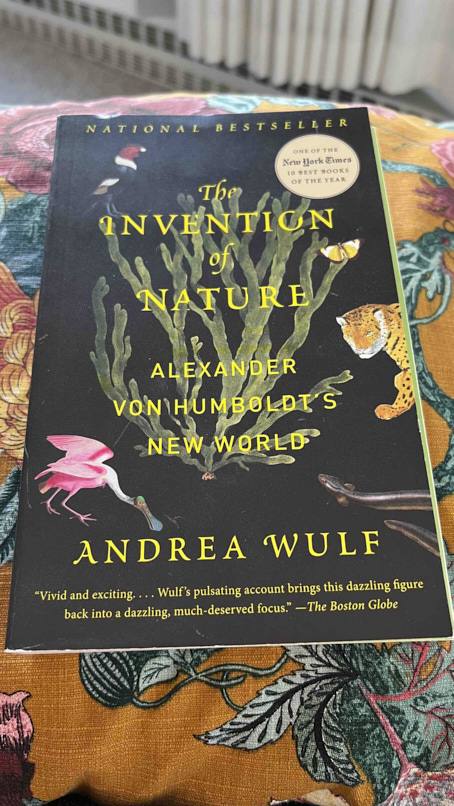
Alexander Von Humboldt is the most underrated explorer/naturalist in modern times and has been largely forgotten by the general public. But he was the last man who knew everything. He used science to show us that everything in the natural world is connected.
Born in Prussia, he liked Paris over Berlin.
He planted the seed of what is now the National Park System in America, which inspired a crucial part of America’s national identity. He encouraged Americans to lean on nature & wilderness.
He climbed Chimborazo, which was considered as the highest mountain in the world in the late 1700s.
Some of his achievements
- mapped distribution of plants on three continents
- created what he called Isotherms to chart mean temperatures around the world.
- charted the way air and water move to create bands of climate at different latitudes and altitudes
- located the magnetic equator
- he tracked what became the Humboldt Current in the pacific ocean
- theorized the spreading of the continental landmass through plate tectonics
- climate change - effects of deforestation, ruthless irrigation, steam, and gas produced by industrial centers.
- he found fossil remains of both plants and animals in geological strata that he understood to be precursors to modern life forms, acknowledging extinction before many others.
- latitudes mirror altitudes. E.g., if you go from sea level at the equator to 19,000ft, you see rainforest, temperate zone, taiga, tundra, permafrost, and glaciers. The same is with if you go from the equator to the poles.
- the term’ COSMOS’ became a part of modern language in the 19th Century when he resurrected the use of the word assigning it to his five-volume ‘kosmos’
"He used the image of a house to explain this: before constructing it brick by brick and piece by piece, it was necessary to have an idea of how the entire building would look. It was this concept of a system that became the linchpin of Humboldt's later thinking.
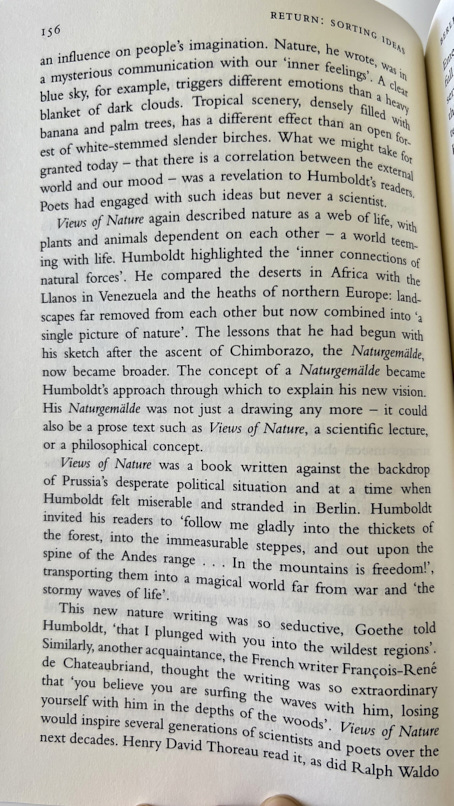 |
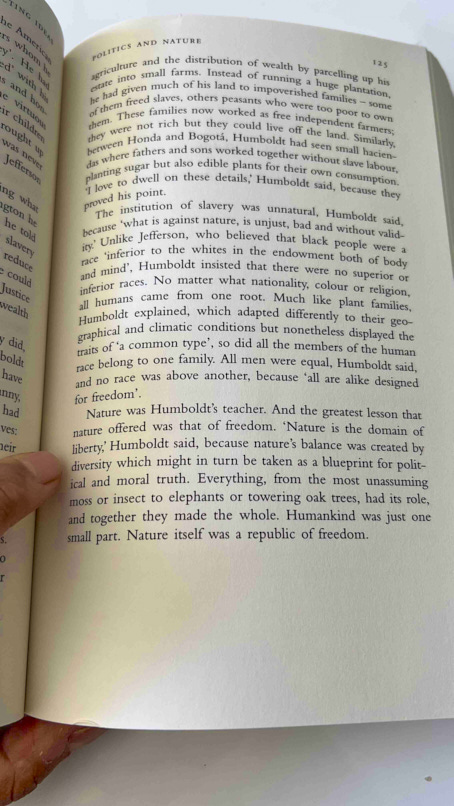 |
"In the decade after his first summer in Yosemite, Muir turned to writing to "entice people to look at Nature's loveliness." As he composed his first articles, he studied Humbold's books, as well as Marsh's Man and Nature and Thoreau's The Maine Howl and Walden. In his copy of The Maine Woods he underlined Thoreau's call for 'national preserves' and began to think about the protection of the wilderness. Humboldt's ideas had come full circle. Not only had Humboldt influenced some of the most important thinkers, scientists and artists, but they, in turn, inspired each other. Together, Humboldt, Marsh and Thoreau provided the intellectual framework through which Muir saw the changing world around him."
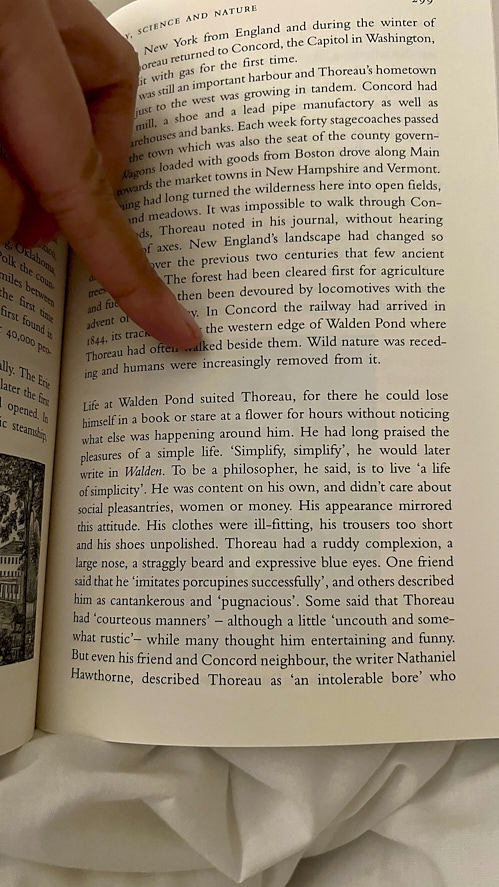 |
 |
"It had all begun with Humboldt and with a walk. I only went out for a walk, and finally concluded to stay out till sundown; Muir wrote after his return, for going out, I found, was really going in."
Citizen

This book is a piece of art!! Not poetry, not essays just abstract and it all makes sense. Dealing with deep systemic problems in a more contemporary setting. I would say this is my first hyperlinked book. There is a lot that is not explicitly said but readers are encouraged to to delve into the details through bibliography, through images, through blank spaces. Very impressed by the writing of the book, reminded me of Caste by Isabel Wilkerson.
There are so many sections that blew my mind. But one that really stood out for me was where she beautifully weaves the Zidane’s World Cup finals with anecdotes from some important people.
And gosh!! ending with a Turner painting and those images in the book, just sheer brilliance.
“I feel most colored when I am thrown against a sharp white background” - Zora Neale Hurston. Claudia Rankine reiterates it to portray the situation of Serena Williams.
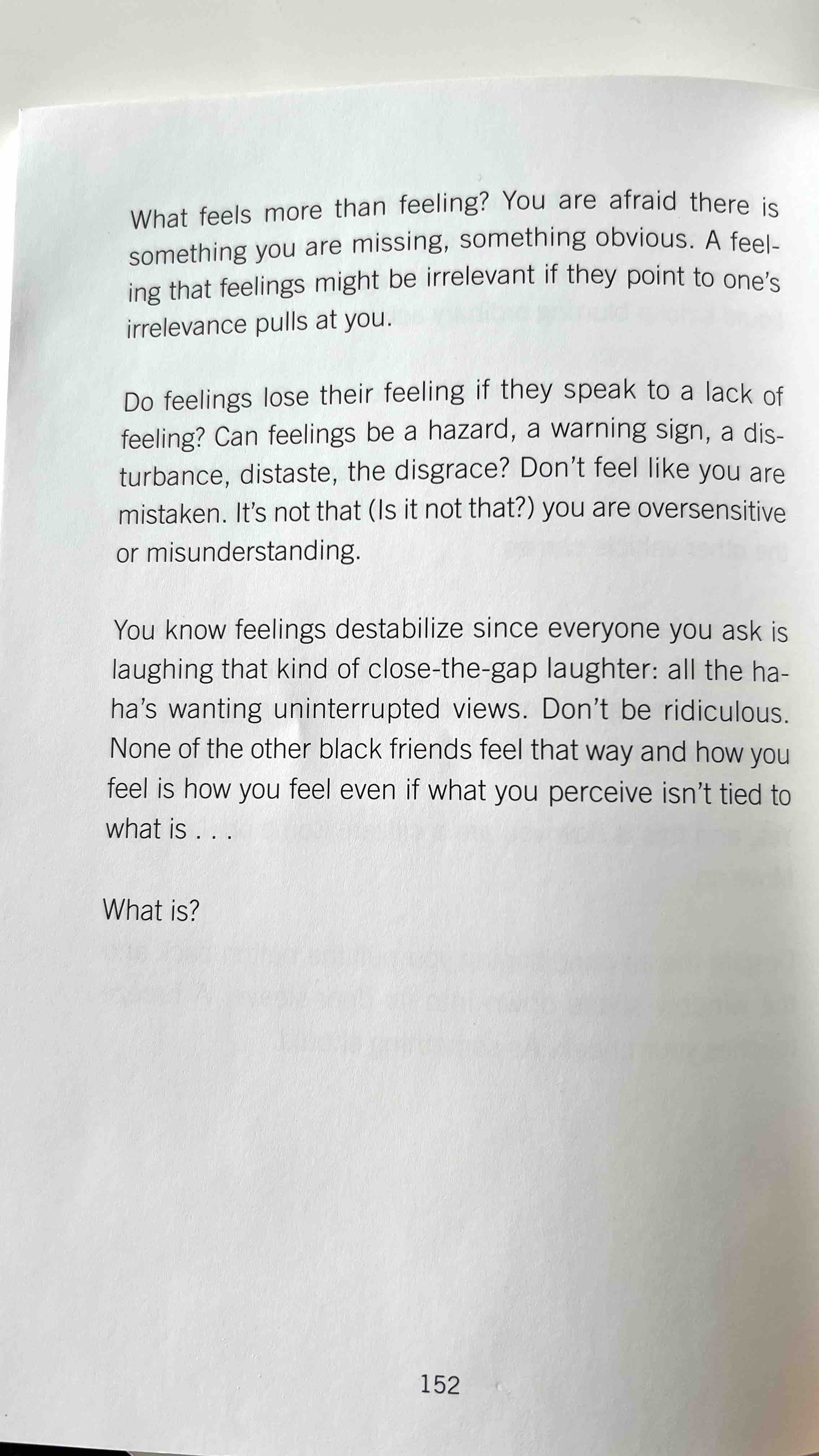 |
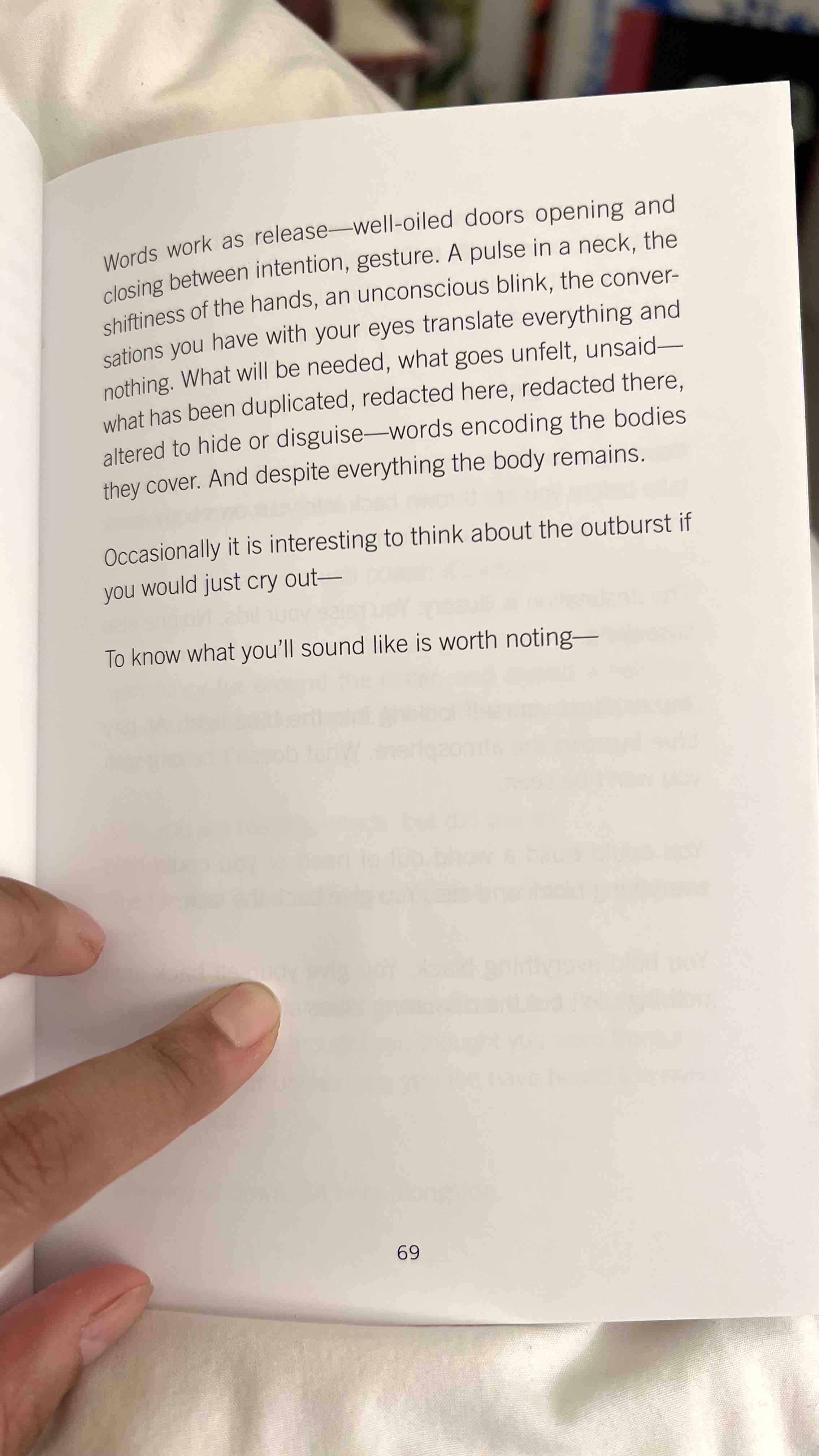 |
The purpose of art," James Baldwin wrote, "is to lay bare the questions hidden by the answers." He might have been channeling Dostoyevsky's statement that "we have all the answers. It is the questions we do not know."
Saaye mein Dhoop
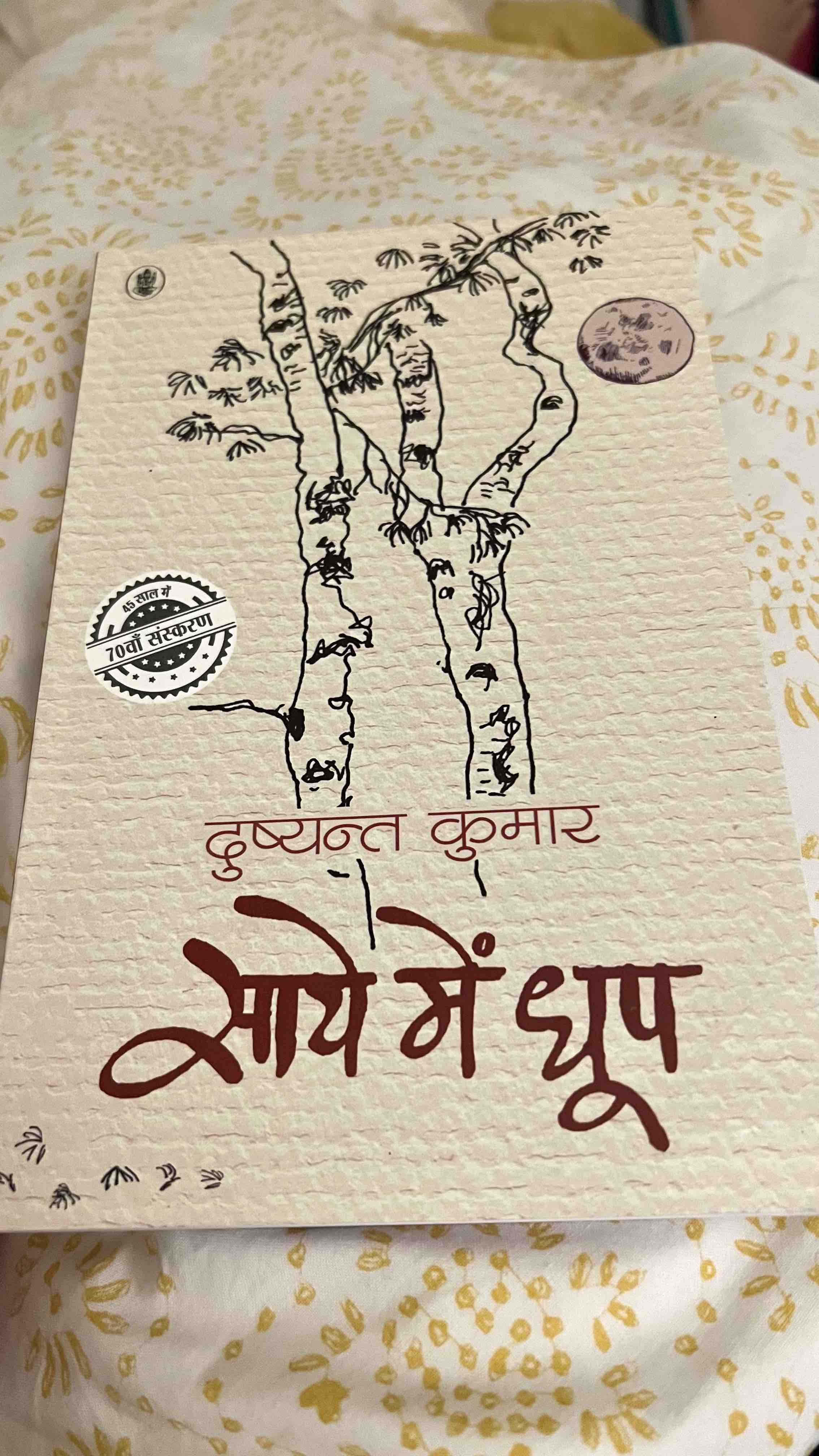

When I heard the song “tu kisi rail si” from the movie ‘Masaan’ for the first time it just blew my mind away. I always thought the lyrics to be Varun Grover’s, didn’t know all these years that these captivating words arefrom Dushyant Kumar. And the entire song is based on his poetry. Pure Gold.
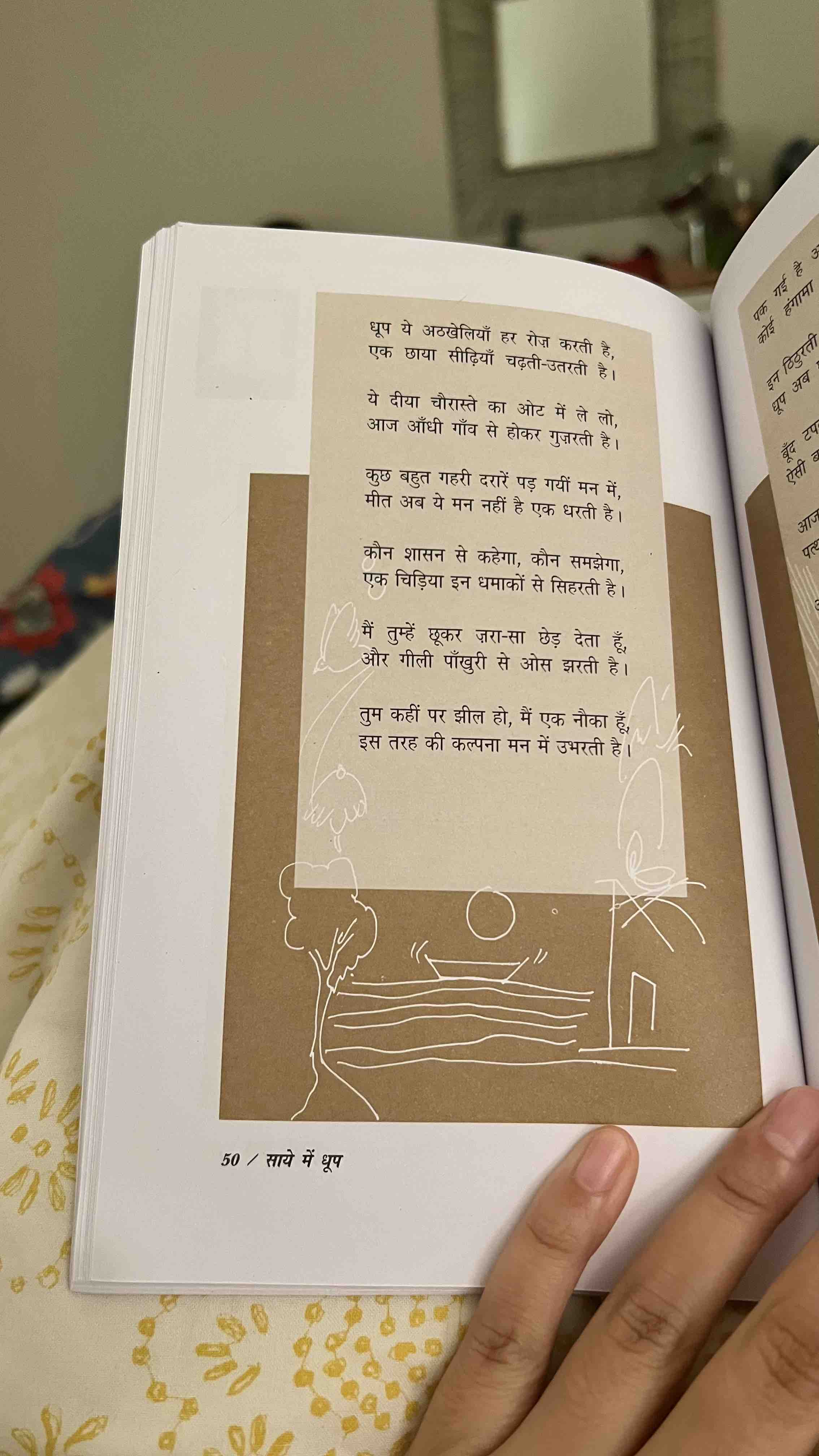 |
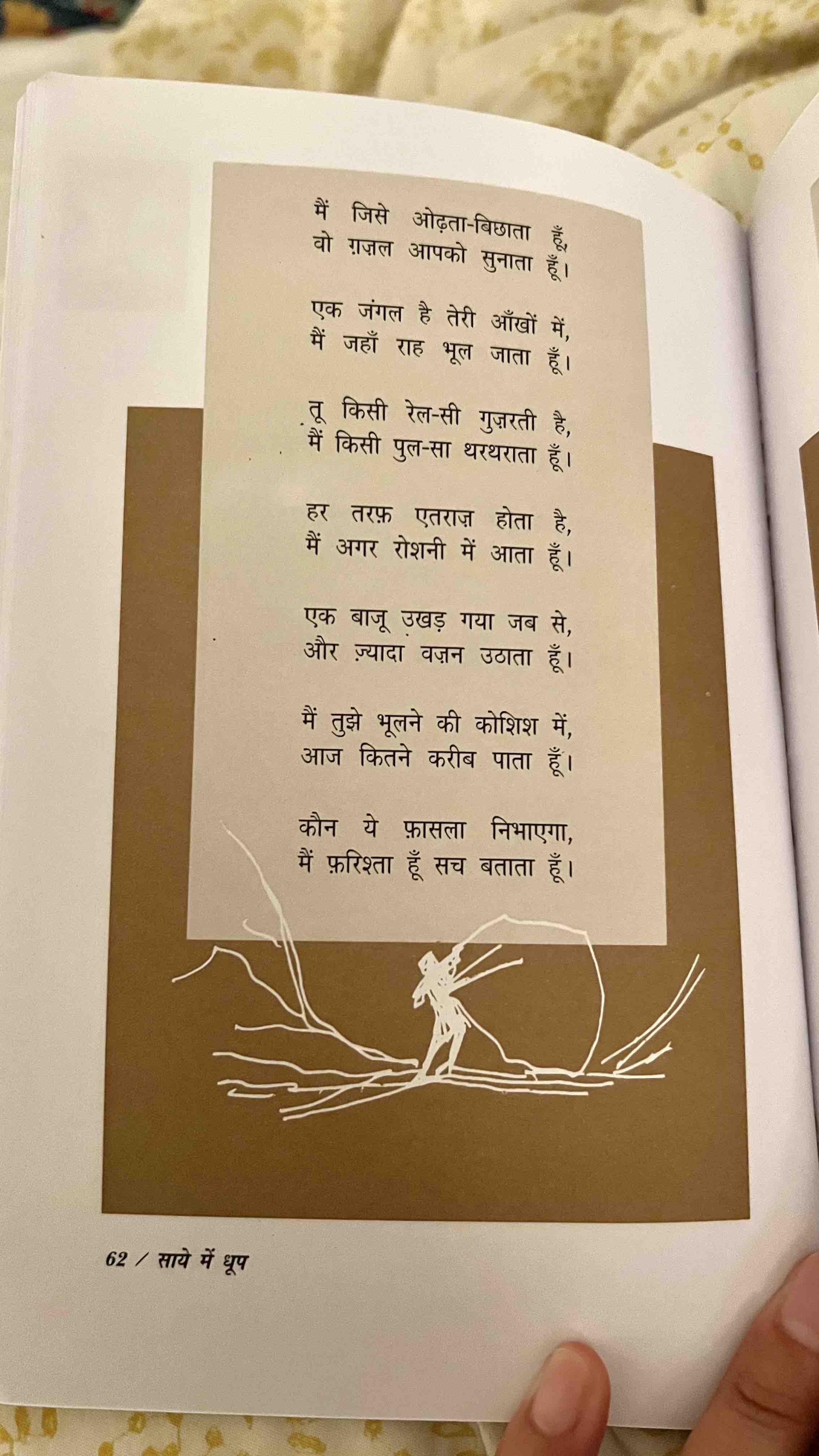 |
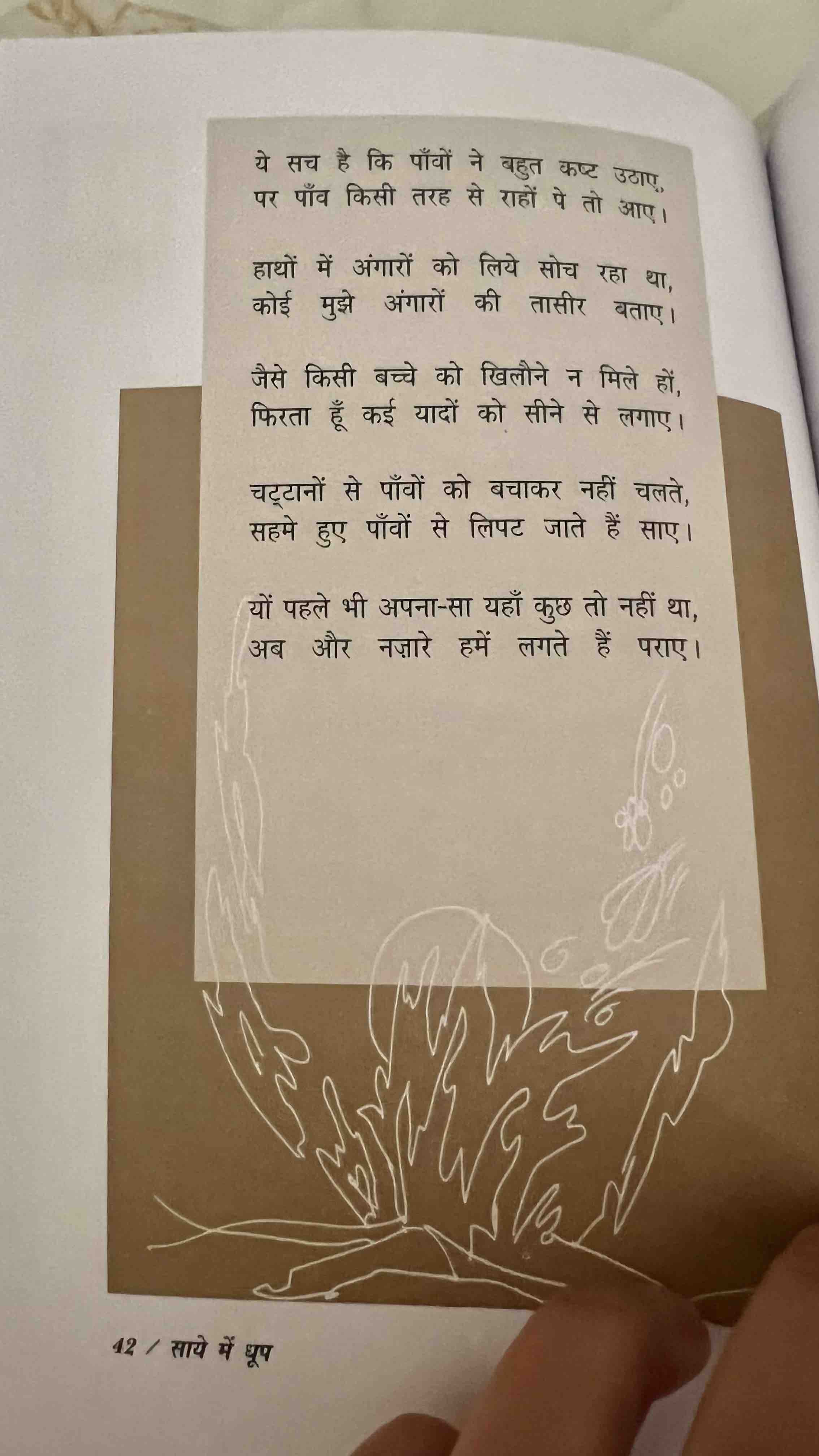 |
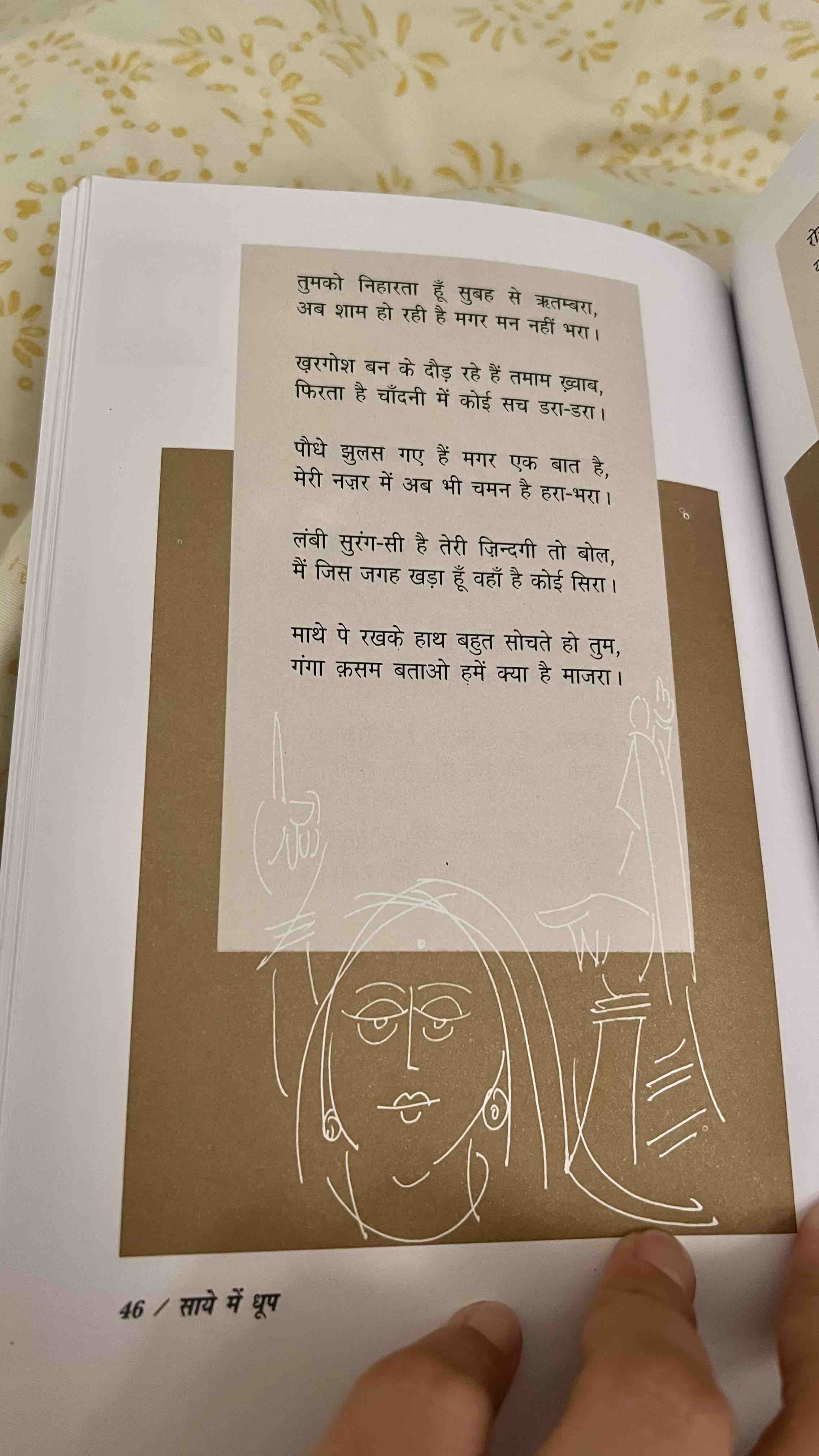 |
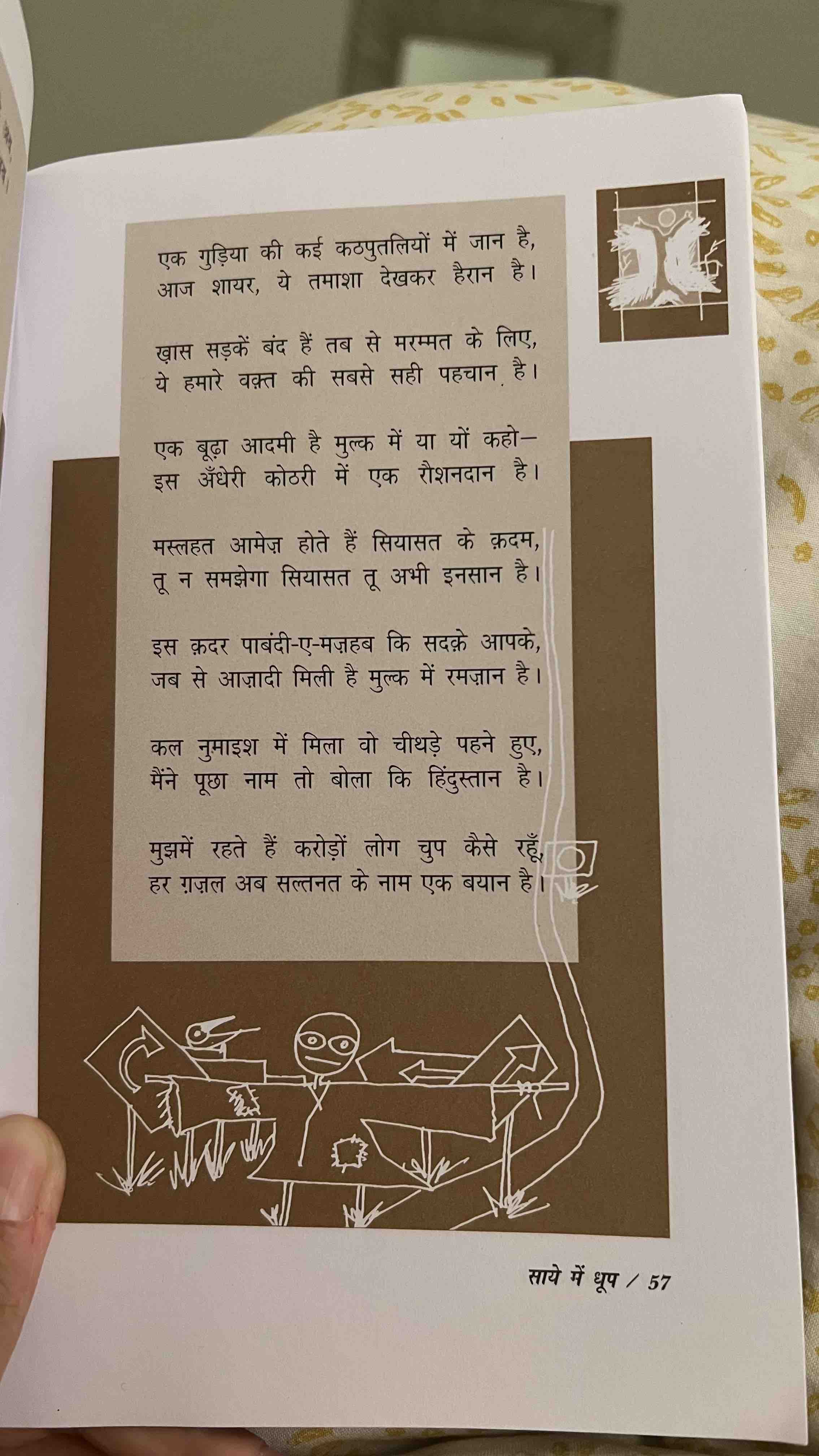 |
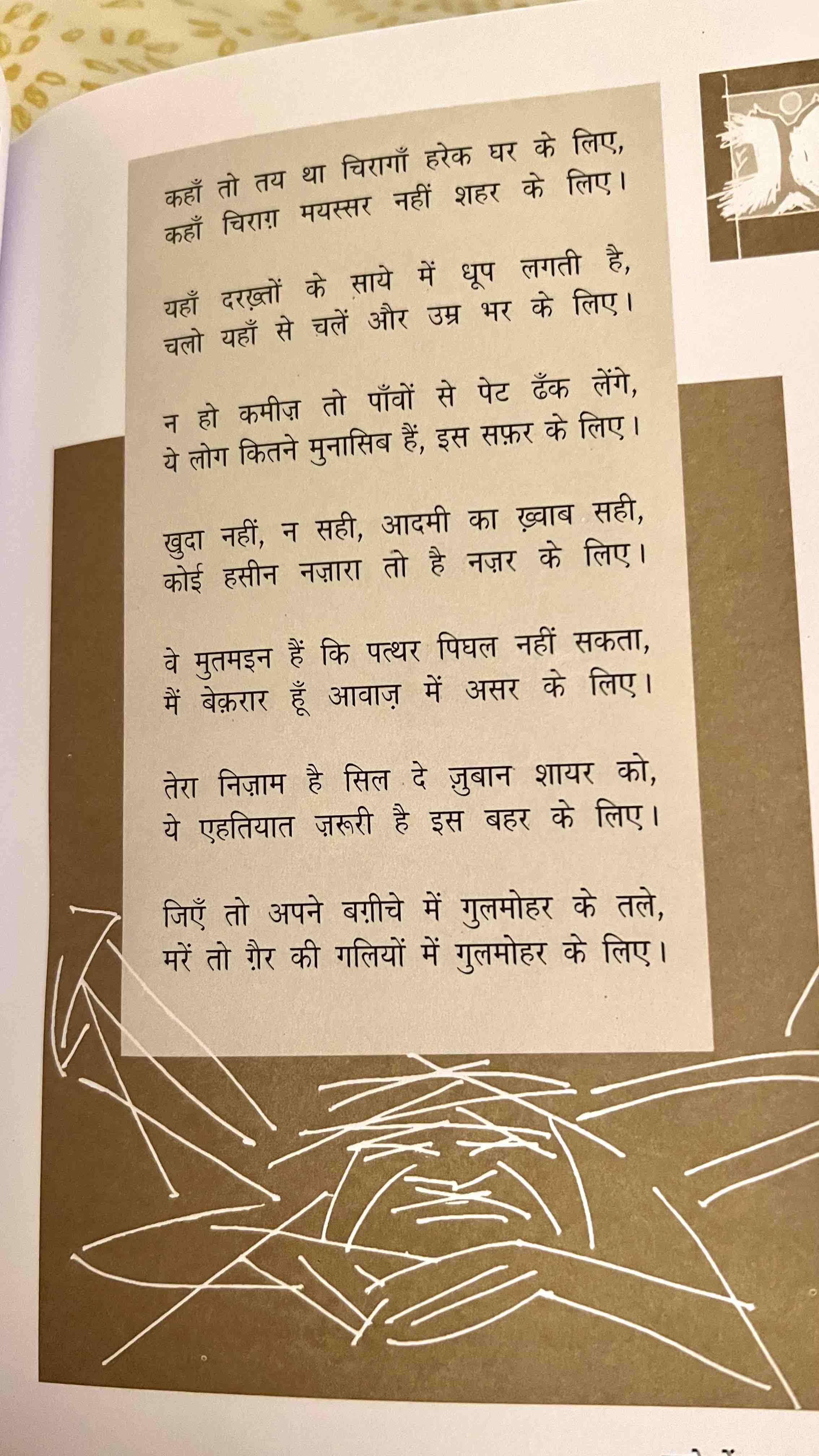 |
Fida-e-Lucknow
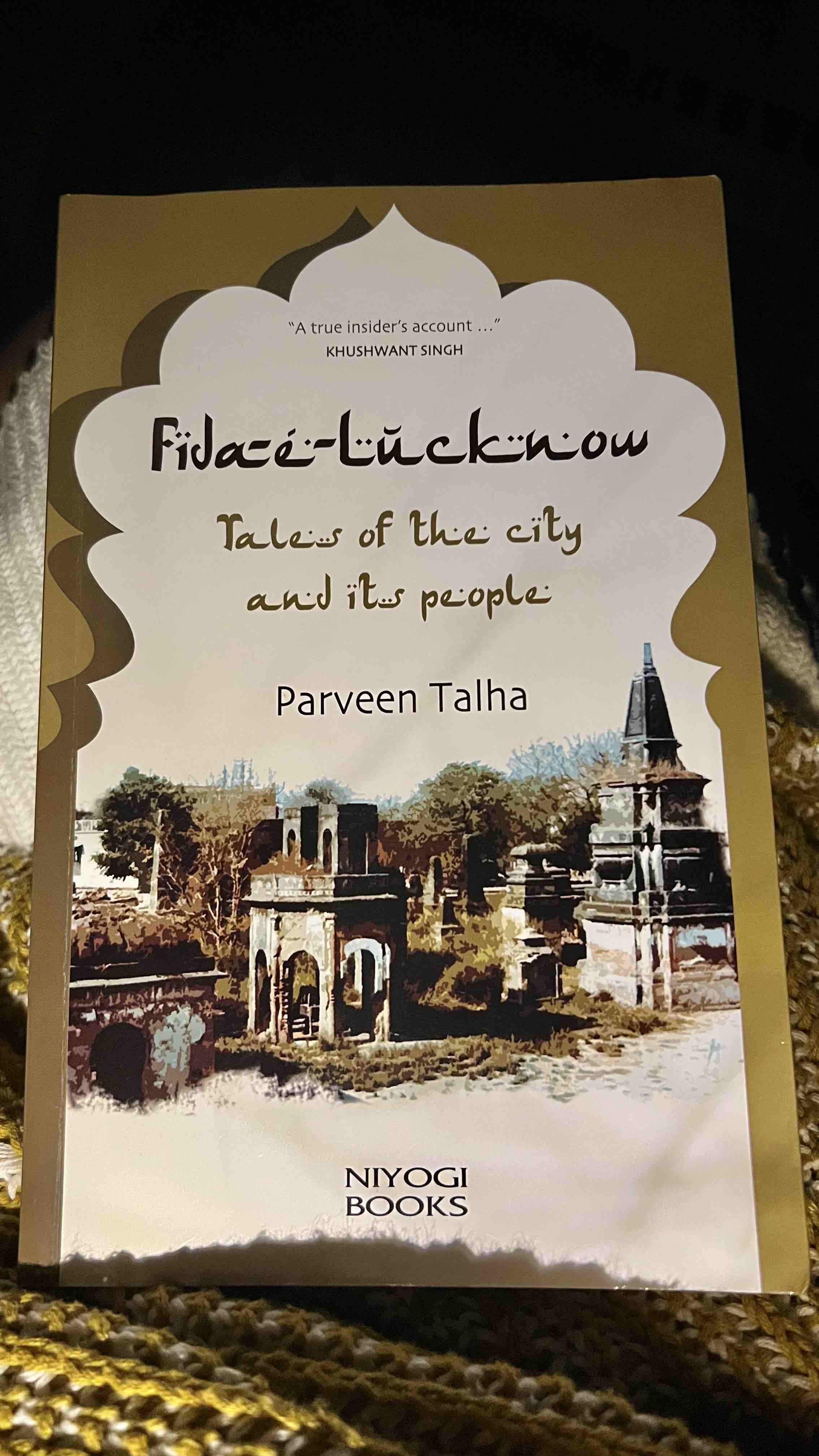
This book shines a light on life and times of the people of Lucknow. It has a strong sense of melancholy - but in a beautiful way, something that any person would relate to.

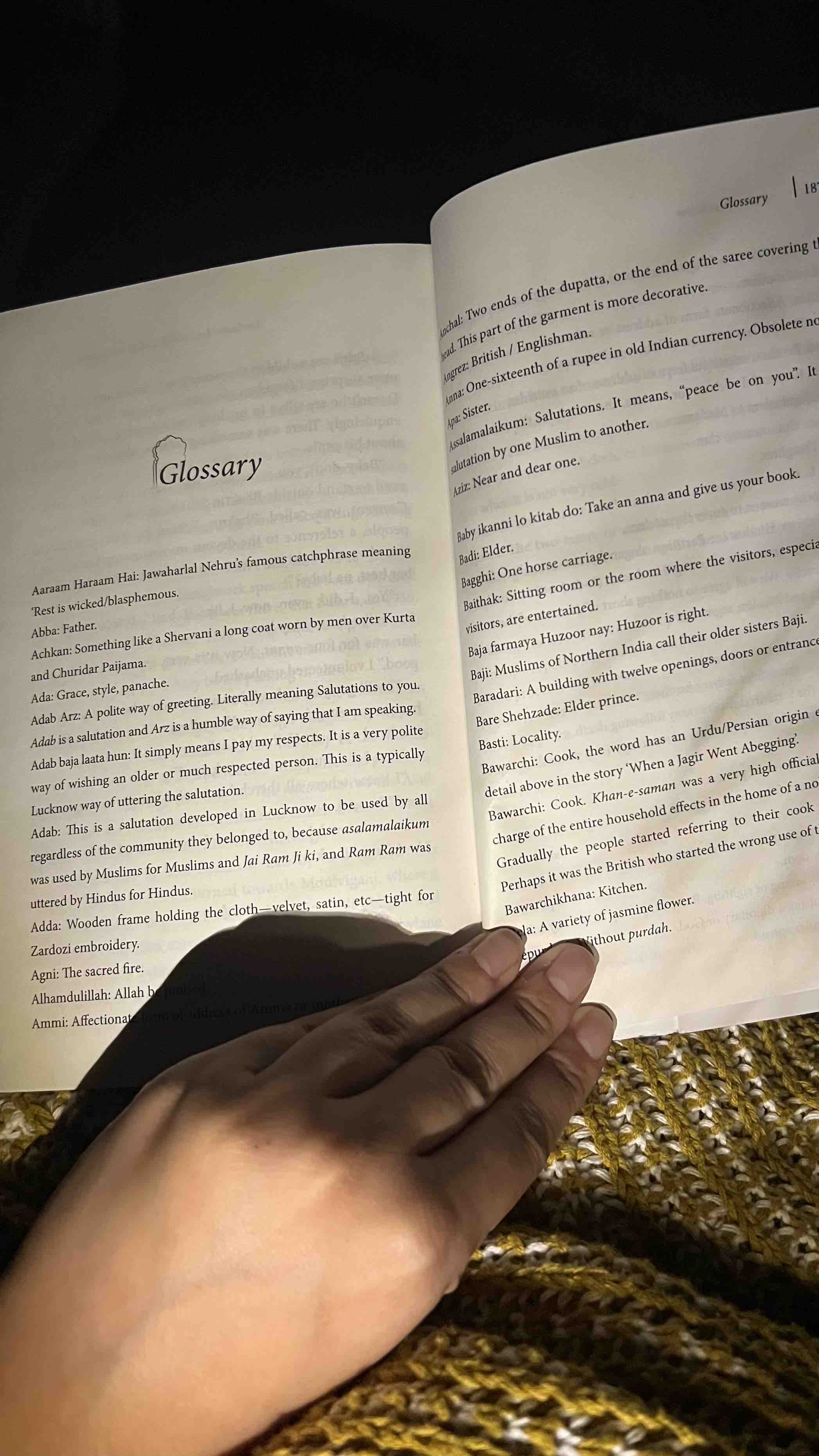
Brushing Up The Years
This book is a representative selection from more than 30,000 cartoons that he has drawn over his career.
Showcase of RK Laxman’s most memorable cartoons & place them in a historical context.
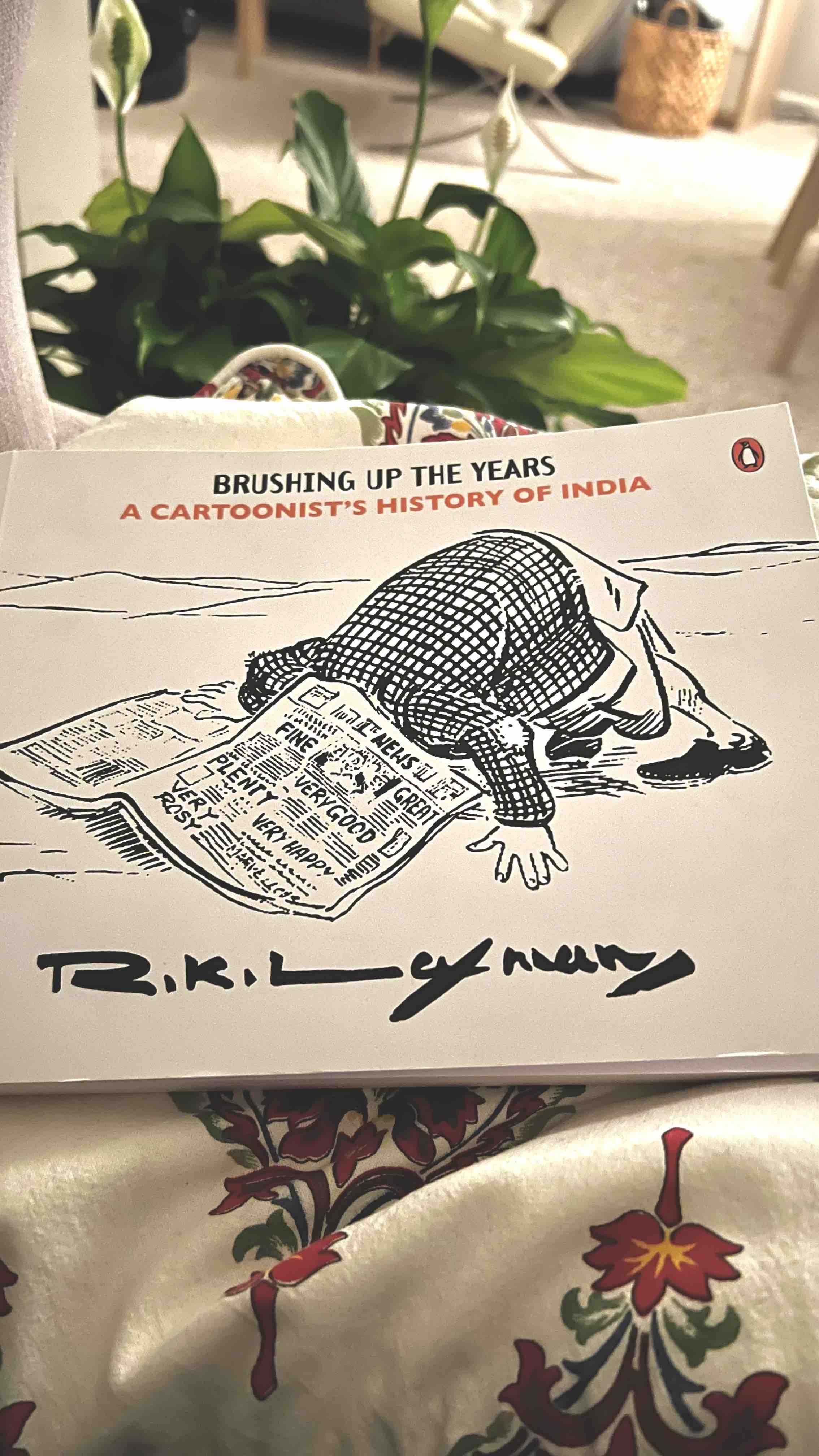
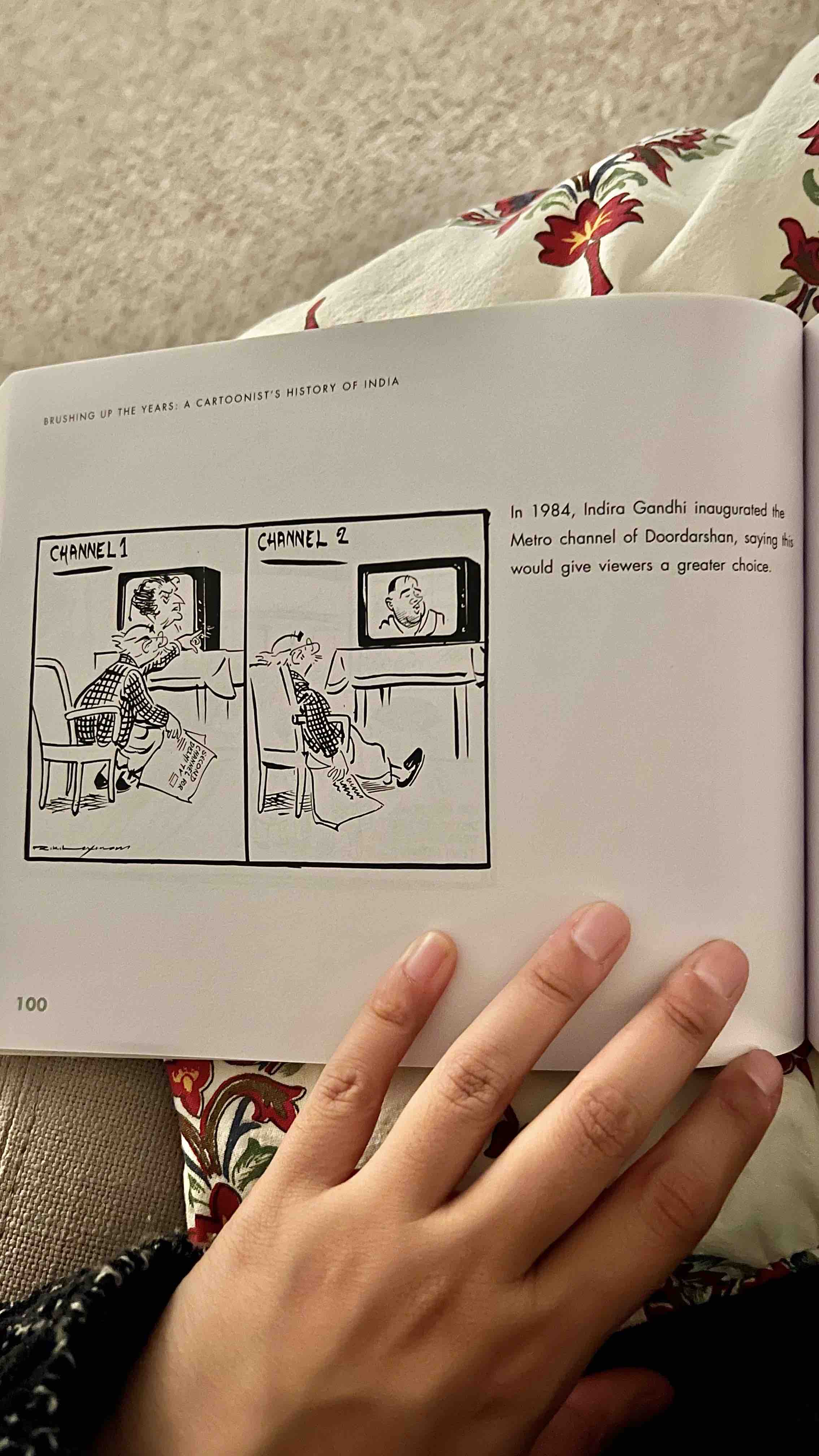
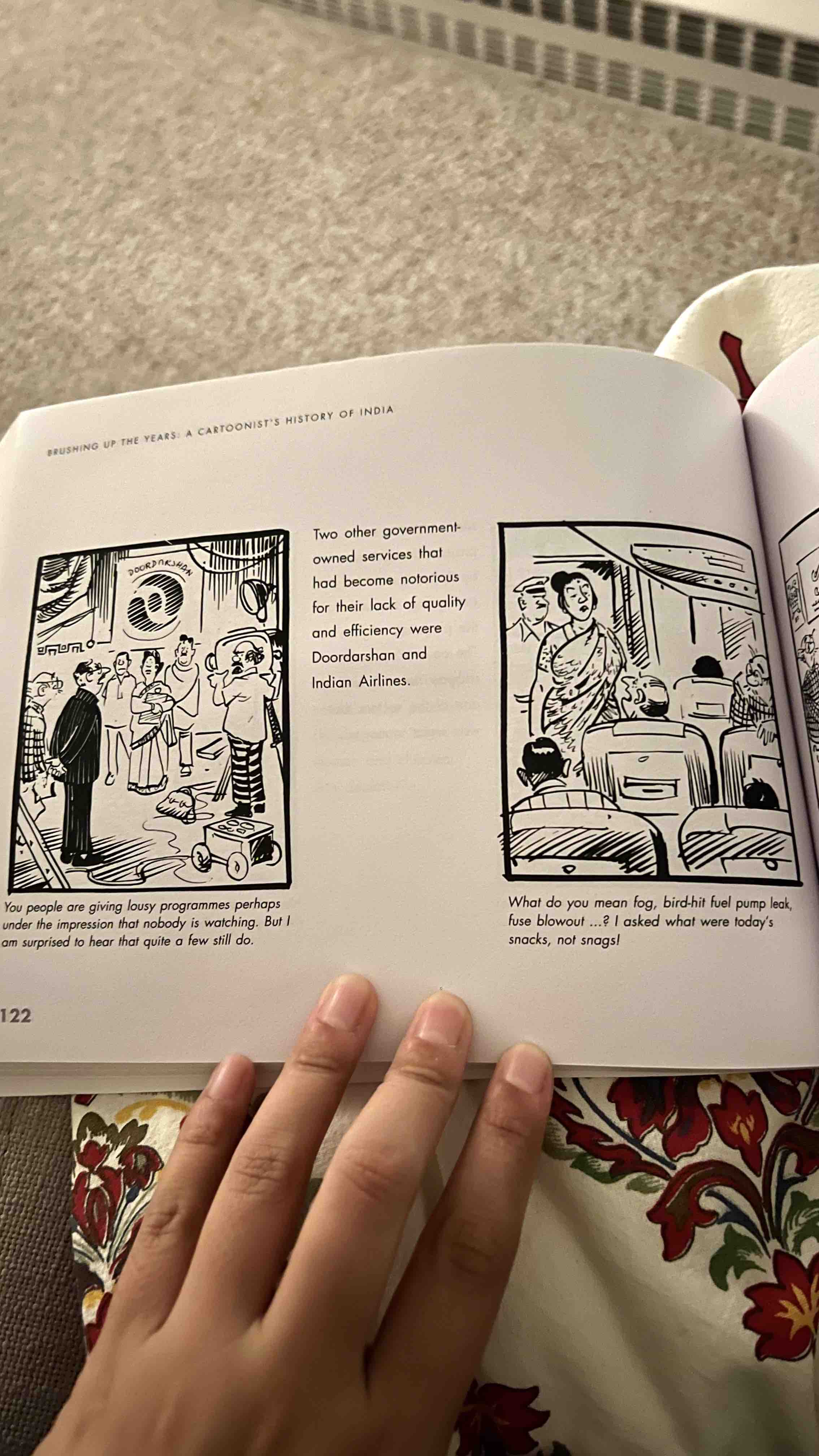 |
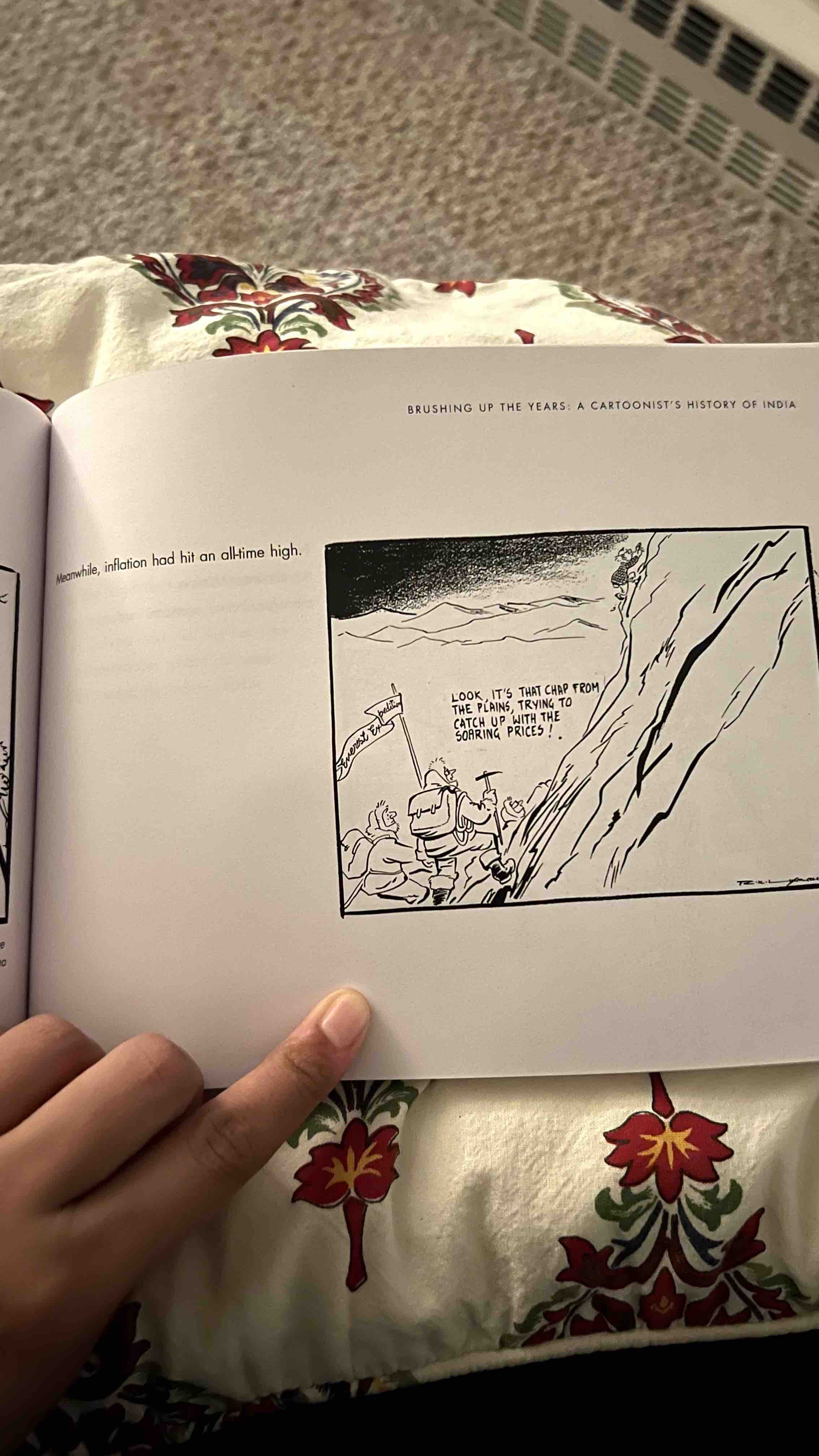 |